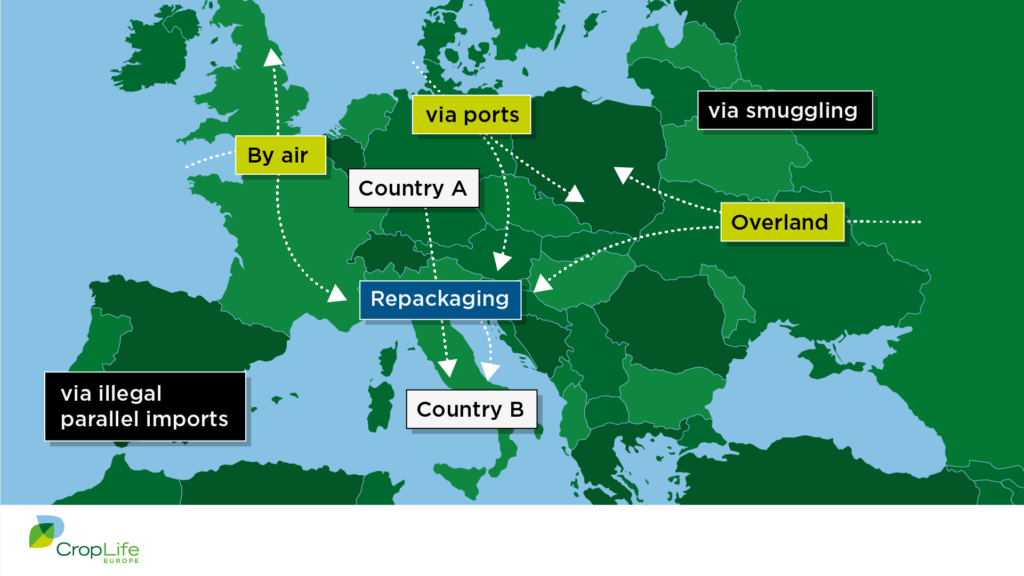Pesticides, like all high value and branded products, are targeted by criminals producing counterfeits.
Being one of the many essential tools in a farmer’s toolbox for integrated pest management, the development of a pesticide requires over ten years of investment, covering research and development through to final authorisation. This investment costs over €250 million before a new active substance can reach the market.
This is not the case for fake pesticides, which are untested and unauthorised. It has become a very lucrative business for criminals, generating over €1 billion a year in Europe, constituting an estimated 9 to 14 % of the European market.
The EU food safety system is one of the most stringent in the world making sure that high standards in food production and rigorous mechanisms are applied in order to successfully manage any food crisis. However, counterfeit and illegal pesticides need to be tackled more effectively. To stop the international trade in illegal and counterfeit pesticides requires:
- -cross border co-operation between enforcement authorities (customs, pesticide authorities and police) and industry
- -public – private cooperation on awareness and education programs
- -European and national legislation
How do criminals cheat the system?

Counterfeit and illegal pesticides arrive on the European market primarily via false declarations at the point of import (smuggling) or under the cover of illegal parallel imports. These products can enter in various forms; as active substances, or as a bulk consignment of pre-manufactured concentrate, or in small containers ready to be used by farmers.
At the point of import, packaging often lacks labels, or has very basic labels without user instructions, or occasionally has a very well designed copy of the original labelling. What is clear, based on the evidence of authorities and industry, is that it is the work of highly sophisticated, criminal networks operating broadly across the EU, with shipments coming mainly from China.
Closing legislative loopholes
The import and entry of non-EU approved pesticides is of course illegal, but by exploiting loopholes in existing legislation, they are permitted entry into the EU and find their way to farmers and onto European crops.
We urge policymakers and regulators to adapt relevant laws, which will help customs officials working in tandem with pesticide authorities, to stop counterfeit and illegal pesticides at EU borders.
Ensuring a safe pesticides market
The crop protection industry strongly encourage and promote awareness among farmers to know their supplier and to avoid buying products from unknown sources, which could be fake or illegal. Counterfeit and illegal pesticides have no guaranteed effectiveness and imply high safety risks as they are untested. Therefore, together with our national associations we have created many awareness-raising campaigns, including toll-free numbers to report suspicions or evidence about illegal pesticides to relevant local authorities.
Awareness campaigns targeted at farmers and distribution channel by authorities and industry is critical to drive positive behaviors for purchase of authentic registered products from legitimate sources. In addition, closing legislative loopholes, vigorous enforcement, significantly more than is currently in place, plus a strong response by farmers to protect their interests (know your supplier) can build simple and effective barriers to the trafficking of counterfeit and illegal chemicals in the EU.
However, as with any counterfeit and illegal trade we can see that criminal networks quickly adapt to new measures and therefore, all stakeholders need to continually work closely together. The crop protection industry is committed to continue investing its efforts to protect human health and environment.